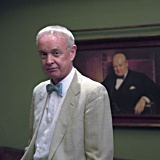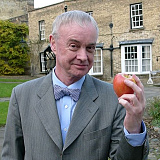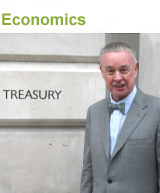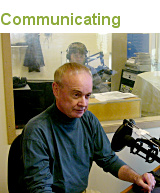 When I addressed the University of Brighton a couple of weeks ago, I went through what I called the viewpoints of neo-liberalism. By this I meant only to show the students how those of us who support the general outlook of Friedrich Hayek and Milton Friedman view the world. I invited the students to spend 15 minutes or so “looking at the world through neo-liberal eyes” as I put it, somewhat tongue in cheek. I went through 10 of the ways in which those inclined to this philosophy viewed the world. I did take a video of my address, and I am in the process of writing up extracts from it. I might refer to some of them here.
When I addressed the University of Brighton a couple of weeks ago, I went through what I called the viewpoints of neo-liberalism. By this I meant only to show the students how those of us who support the general outlook of Friedrich Hayek and Milton Friedman view the world. I invited the students to spend 15 minutes or so “looking at the world through neo-liberal eyes” as I put it, somewhat tongue in cheek. I went through 10 of the ways in which those inclined to this philosophy viewed the world. I did take a video of my address, and I am in the process of writing up extracts from it. I might refer to some of them here.
I covered such things as the essentially subjective nature of value, of the importance of factoring time into economic transactions, and my third point told how we of that persuasion tend to compare the present with the past. Others look at what is and compare it with a vision in their mind of what it might be. We are more empirical, comparing it to what was. Life expectancy about 150 years ago was about 30 years, and had been so for millennia. Now it is about 68 years globally, and higher than that in developed countries. We look at death to mothers in childbirth, and see it is now a tiny fraction of what it was even at the turn of the previous century. We look at infant mortality and see how that, too, is now a tiny fraction of what it was. Many of the diseases of the past have been conquered or controlled, and although there are new ones now that we live longer, we are in the process of controlling those, too. In the past most people battled to survive at subsistence level, whereas now we have more people above poverty and starvation than ever before in the history of humankind.
In other words we see things as being better than they were. Of course we can imagine a future which will be better than our present, but the empirical approach is to compare present with past, examine what made the difference, and attempt to do more of it. What made the difference was economic development and wealth creation, not the redistribution of existing wealth. It was opportunity, not equality, that drove progress, and we who support freedom want to see more of it, so that the future world will be as different from the present as ours is from the past.
Filed under: Updates |










Madsen writes: …, but the empirical approach is to compare present with past, examine what made the difference, and attempt to do more of it.
While I agree with his point about empiricism, one of the major concerns I have with the statist approach is that they do exactly this. A modest policy of X leads historically to a modest improvement in Y. It is therefore assumed that a lot of policy X will lead to further improvement. As much of what we do is a trade-off (as per cost-benefit analysis) between the bad of two extremes, there is every expectation that the best amount of X is not the maximum.
Thus I don’t think Madsen has expressed himself well enough.
Best regards
[…] Madsen Pirie describes how he invited his University of Brighton audience to look at the world “through neo-liberal eyes”, rather than through the sort of eyes they are probably more used to using: […]
[…] of young libertarians in the world. Pirie featured in my previous posting here, which quoted from a piece by him about a speech he recently gave to some students at the University of Brighton. He does […]